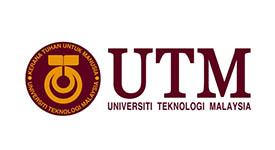
Start Chat with a Counsellor

| Study Mode | FULL TIME | ||||
| Level | UNDER-GRADUATE | ||||
| Duration | FULL TIME : 4 yrs,PART TIME : 6 yrs | ||||
| Intake |
|
Depletion of the country’s petroleum and gas reserves has prompted the country to look for alternative sources of energy. Nuclear energy is one of the best alternative sources of energy. Rapid developments in the application of nuclear engineering in other sectors such as defence, medical and agriculture are demanding for more nuclear engineers. It has been shown that one of the critical conditions for the successful introduction of a nuclear power programme and other nuclear related industries is the availability of trained manpower that meets the desired quality and quantity. These reasons have called for the establishment of education/training infrastructures as well as national education and training capabilities in the field of engineering and science in order to develop qualified personnel for the nuclear power programme.
PROGRAMME STRUCTURE
| Code | Intended Learning Outcomes |
| PLO1 (KW) | Ability to apply knowledge of mathematics, natural science, engineering fundamentals, chemical/petroleum/bio-process/ gas/nuclear engineering principles to the solution of complex engineering problems. |
| PLO2 | Ability to identify, formulate, conduct research literature, and |
| (THPA) | analyze complex chemical/ petroleum/ bio-process/ gas/ nuclear engineering problems using first principles of mathematics and engineering sciences. |
| PLO3 (THDS) | Ability to design solution for complex chemical/ petroleum/ bio-process/gas/nuclear engineering problems and design system or process to meet specified needs with appropriate consideration for public health and safety, cultural, societal, and environmental considerations. |
| PLO4 (THI) | Ability to conduct investigation of complex chemical/ petroleum/ bioprocess/ gas/ nuclear engineering problems using research-based knowledge and research methods including design of experiments, analysis and interpretation of data, and synthesis of information to provide valid conclusions. |
| PLO5 (SCMT) | Ability to inculcate modern computational techniques and tools complex chemical/ petroleum/ bio-process/ gas/ nuclear which include prediction and modeling to solve complex engineering problem with an understanding of the limitations. |
| PLO6 (AD) | Ability to responsibly act as well as respond to the societal health, safety, environment, legal and cultural issues that are relevant to the professional engineering practice. |
| PLO7 (GCS) | Ability to explain and evaluate the sustainability and impact of professional engineering work in the solution of complex chemical/ petroleum/ bio-process/ gas/ nuclear engineering problems in societal and environmental contexts. |
| PLO8 (GCE) | Ability to apply ethical principles and commit to professional ethics and responsibilities and norms of engineering practice. |
| PLO9 (CS) | Ability to communicate effectively through written and oral modes to all levels of society |
| PLO10 (TW) | Ability to work independently, and as a member or a leader in a team to manage project in multi-disciplinary environment. |
| PLO11 (SC) | Ability to acquire knowledge and engage in independent and life-long learning. |
| PLO12 (ES) | Ability demonstrate knowledge of engineering management principles and entrepreneurial mindset to manage projects in multi-disciplinary environments. |
Note: KW = Engineering Knowledge; THPA = Thinking Skills-Problem Analysis; THDS= Thinking Sills Design/Development of Solution; THI =Thinking Skills-Investigation; SCMT= Scholarship Modern Tool Usage; AD = Global Citizen Adaptability; GCS = Global Citizen Sustainability; GCE = Global Citizen Ethics; CS = Communicating Skills; TW = Leadership and Team Working; SC = Life Long Learning; ES = Enterprising Skills
ENTRY REQUIREMENTS
Matriculation or STPM with minimum of B- in Mathematics/ Additional Mathematics/ Further Additional Mathematics, Chemistry/ Engineering Chemistry and Physics/ Engineering Physics/ Biology with CPA 3.00 and not physically handicapped which makes him/her unable to conduct experimental/ practical work.
Copyrights © 2024-25 Education Malaysia. All rights reserved.
